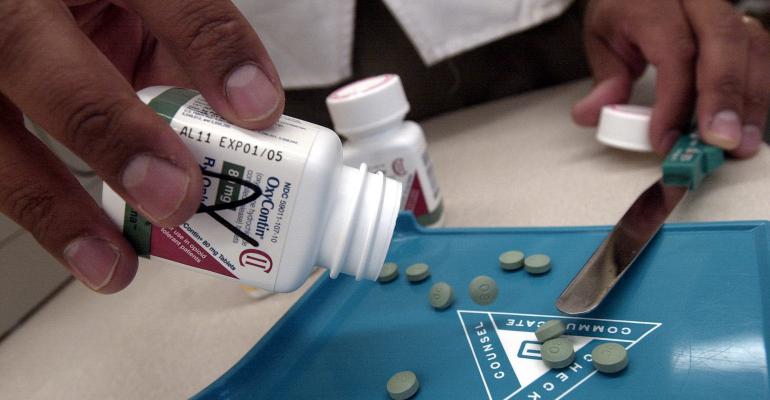(Bloomberg) -- The money began to flow a decade ago, just as the U.S. government cracked down on Purdue Pharma.
Billions of dollars went to the company’s founding family, the Sacklers, from the drugmaker, whose blockbuster painkiller OxyContin helped fuel the nation’s opioid crisis.
In one instance, $200 million passed through three Purdue affiliates before reaching partnerships linked to the heirs of the company’s co-founders. In all, $10.3 billion of cash payments were made from 2008 through 2017, according to a forensic audit filed as part of Purdue’s bankruptcy.
The payments shine a light on the Sacklers’s finances, which authorities are trying to untangle as the two sides negotiate a settlement. The New York Times reported on the 350-page audit late Monday.
The family’s diverse investments include ski resorts, oil companies and skin-care products. They’re held in trusts, holding entities and investment vehicles in jurisdictions such as Delaware and Wyoming.
They have names such as Hercules Trust and the somewhat blander BR Holdings Associates LP, as well as family offices like Summer Road LLC, run by David A. Sackler, grandson of the late Raymond Sackler.
Daniel S. Connolly, a lawyer for that branch of the Sackler family, said most of the $10.3 billion was paid out in taxes or reinvested in businesses slated to be turned over to states and municipalities as part of a proposed settlement. The report notes that $4.7 billion was set aside to cover taxes and $1.5 billion was received by affiliated entities.
Pushing OxyContin
That would still leave the families of Mortimer and Raymond Sackler with a combined $6.9 billion after accounting for typical market performance, according to calculations by the Bloomberg Billionaires Index. That total includes $1.3 billion of payments made from 1995 through 2007 that also were disclosed in the audit.
The Sacklers have offered to pay $3 billion as part of a $10 billion settlement to resolve lawsuits against them and Purdue.. They’ve offered to sell their international pharmaceutical business, Mundipharma, to fund the agreement, according to a term sheet filed in bankruptcy court.
Some state attorneys general and lawyers for U.S. cities and counties are demanding the family pay more to resolve about 2,700 lawsuits alleging that they and the drugmaker inflamed the opioid crisis by illegally pushing OxyContin. More than 40 people die each day from overdoses of prescription opioids, according to the U.S. Centers for Disease Control and Prevention.
The Sacklers have scored some notable investment successes outside of Purdue. A branch of the family received more than $100 million from the recent sale of a ski resort company. Relatives of Raymond Sackler, who died in 2017, held a 54% stake in Peak Resorts Inc., which was acquired by Vail Resorts Inc. in September.
The audit also shows that 15 Sackler family members were on Purdue’s payroll, collecting $371,400 in wages from 2008 to 2018. Three of them tapped the firm’s pension system, splitting nearly $3 million in lump sum payouts, according to the documents.
The company also paid $477,000 for Sackler family mobile phone bills during that time before being reimbursed for the full amount in August.
--With assistance from Steven Church.
To contact the reporters on this story:
Tom Metcalf in London at [email protected];
Jeremy Hill in New York at [email protected];
Emma Vickers in New York at [email protected]
To contact the editors responsible for this story:
Pierre Paulden at [email protected]
Peter Eichenbaum, Steven Crabill





